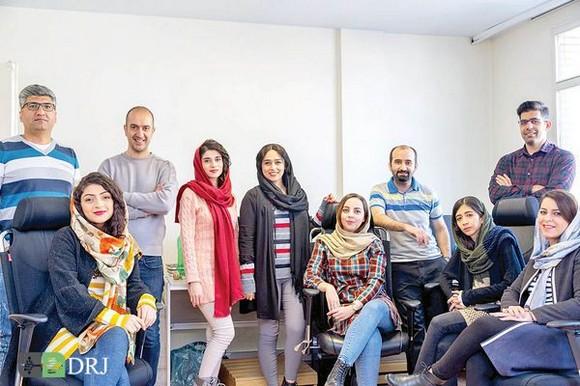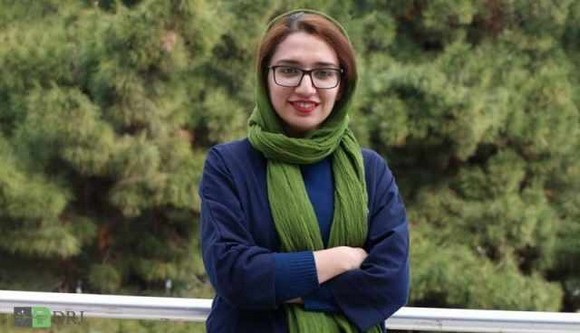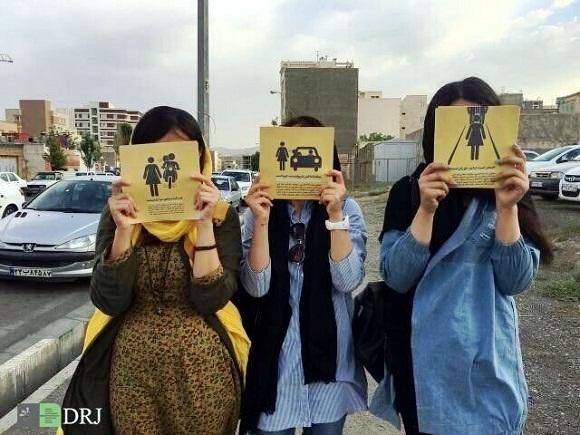Sayyid Jamal al-Din Muhammad b . Safdar al-Afghani
Sayyid Jamal al-Din Muhammad b . Safdar al-Afghani ( 1838-1897 )
Sayyid Jamal al-Din Afghani is considered to be the founding father of Islamic modernism . His place of birth , which has become a source of long-standing controversy , is not known , but he received his early education in various religious schools near Kabul , Afghanistan and Qazwin and Tehran , Iran . At the age of seventeen or eighteen , he went to India ( 1855/6 ) to continue his studies . During his stay in India until 1882 , Afghani became closely acquainted with the positivistic ideas of Sayyid Ahmad Khan and wrote his famous The Truth about the Neichari Sect and an Explanation of the Necharis ( Hakikat-i Madhhab-i Naychari wa Bayan-i Hal-i Naychariyan ) , first published in 1881 in Hyderabad , in rejection of S . A . Khan and his followers . The book was later translated by Muhammad ‘Abduh into Arabic and published as The Refutation of the Materialists ( al-Radd ‘ala al-dahriyyin ) in Beirut , 1886 .
In 1870 , he traveled to Egypt and Istanbul where he received a warm welcome from Ottoman officials and intellectuals who were instrumental in the creation of the Tanzimat reforms . Afghani went to Egypt for the second time and stayed there for the next eight years ( 1871-9 ) during which time he began to spread his philosophical and political ideas through his classes and public lectures .
At the beginning of 1883 , Afghani spent a short time in London and then went to Paris . In Paris , Afghani begun to publish his famous journal al-‘Urwat al-wuthqa’ ( “The Firmest Robe” – a title taken from the Qur’an ) with the close collaboration of his friend and student Muhammad ‘Abduh whom he had invited from Lebanon to Paris . Due to a number of difficulties , al-‘Urwah was discontinued in September 1884 after eighteen issues . Through his essays and especially his polemic against Ernest Renan , a French historian , philosopher and positivist , Afghani established considerable fame for himself in the Parisian intellectual circles .
In 1886 , he was invited by Shah Nasir al-Din to Iran and offered the position of special adviser to the Shah , which he accepted . Afghani , however , was critical of Shah’s policies on the question of political participation . This difference of opinion forced Afghani to leave Iran for Russia ( 1886 to 1889 ) . In 1889 on his way to Paris , Afghani met Shah Nasir al-Din in Munich and was offered the position of grand vizier . But Afghani’s unabated criticisms of the rule and conduct of the Shah led to his eventual deportation from Iran in the winter of 1891 . Afghani was later implicated in the murder of Shah Nasir al-Din in 1896 .
Afghani spent the last part of his life in Istanbul under the patronage and , later , surveillance of Sultan ‘Abd al-Hamid II . The demands for Afghani’s extradition by the Iranian officials for his alleged involvement in the assassination of Shah Nasir al-Din were rejected by ‘Abd al-Hamid who , most probably , collaborated with Afghani for the implementation of his political program of pan-Islamism or Islamic unity ( ittihad-i islam ) . To this end , Afghani sent a number of letters to various Islamic countries and leaders to mobilize and unite them against the British rule while at the same time trying to establish the foundations of a mutual rapprochement between the Sunnis and the Shi`ites . According to some historians , ‘Abd al-Hamid grew suspicious of Afghani’s meetings with some Arab leaders and the British officials in Istanbul and did not permit him to leave the country . Afghani died of cancer in March 9 , 1897 and was buried in Istanbul .
Afghani’s career as a thinker and activist has had a deep impact on the Islamic world and continues to be a source of inspiration and controversy for many today . Afghani’s project of Islamic modernism that he developed in his lectures , polemics , short essays , and newspaper columns was based on the idea of finding a modus vivendi between traditional Islamic culture and the philosophical and scientific challenges of the modern West . It would not be wrong to say that Afghani took a middle position between blind Westernization and its wholesale rejection by the traditional ‘ulama’ . His basic assumption was shared by the whole generation of the 19th century Muslim thinkers and activists: modern Western science and technology are essentially separable from the ethos and manners of European nations and can and should be acquired by the Islamic world without necessarily accepting the theological and philosophical consequences emerging from their application in the Western context . As we shall see below , Afghani’s views on science should be understood in the light of this general program of Islamic ‘reform’ or renewal ( islah or tajdid ) .
Afghani , unlike many of the revivalist thinkers of his generation , was well versed in traditional Islamic philosophy ( hikmah ) , and considered philosophy essential for the revival of Islamic civilization . This is clearly reflected in his various lectures and particularly in The Refutation of the Materialists . In fact , Afghani’s philosophical arguments against the naturalists and materialists derive their force from his philosophical training . As we see in his lecture “The Benefits of Philosophy” , Afghani’s vision of a ‘modern Islamic philosophy’ was closely tied to his confidence in the recent advancements made in the fields of science and technology . Unlike traditional theology ( kalam ) , philosophy should articulate a cosmology based on the findings of modern science . These and similar ideas expressed by Afghani have been used by his critics and enemies to label him as a heretic . His role in the revival of the study of Islamic philosophy in the Arab and Indian worlds , however , remains unmistakable .
Afghani’s political program of pan-Islamism ( ittihad-i islam ) sought to mobilize Muslim nations to fight against Western imperialism and gain military power through modern technology . Afghani’s call for the independence of individual Muslim nations has been a key factor in the development of the so-called “Islamic nationalism” and influenced such Muslim figures as Muhammad Iqbal , Muhammad Ali Jinnah and Abu’l Kalam Azad in the Indian subcontinent and Namik Kemal , Said Nursi and Mehmet Akif Ersoy in the Ottoman Turkey . Later in the 20th century , Afghani became a major source of inspiration for such revivalist movements as the Muslim Brethren of Egypt and the Jama`at-i Islami of Pakistan . In many ways , Afghani continues to be hailed by various Islamic activist groups as an important example of the activist-scholar type in the Islamic world . Afghani had also a deep impact on many Egyptian thinkers including Muhammad ‘Abduh , Rashid Rida , ‘Ali ‘Abd al-Raziq , Qasim Amin , Lutfi al-Sayyid and Osman Amin .
Before delving into Afghani’s ideas on science , a word should be said about a long-standing controversy surrounding Afghani’s ethnic origin and religious ( madhhab ) identity . One end of the controversy pertains to his being an Iranian or Afghan , and the other to his being Shi`ite or Sunni . Some have even claimed that Afghani was born into a Turkish speaking Azari family in Hamadan . Curiously enough , the root of the debate goes back to Afghani himself for he was acutely aware of the impact that his ethnic origin and religious position would have on both the Sunni and Shi`ite worlds . As a matter of expedience , if not anything else , Afghani seems to have been willingly and deliberately ambiguous about both issues to ensure the reception of his ideas in the Islamic world . Be that as it may , Afghani’s influence on the Islamic world as a whole has not been marred by the ways he has been portrayed up to our own day .
As a public intellectual and activist , Afghani articulated and expressed most of his ideas through his lectures and wrote very little . He published only two books in his lifetime . One is a history of Afghanistan and the other his famous refutation of naturalism and materialism , which he singled out as the most urgent threat to humanity in general and to the Islamic world in particular . It is worth noting that Afghani’s only published book of intellectual substance is directly related to the question of religion and science . Although very short , Afghani’s letter to Ernest Renan in response to his celebrated lecture at Sorbonne given in 1883 , in which Renan openly attacked Islam as an obstacle to philosophy and science , is another important document for the understanding of Afghani’s position on Islam and modern science .
In The Refutation of the Materialists , Afghani gives a scathing criticism of the naturalist/materialist position from the scientific , philosophical , ethical , and social points of view . He identifies the materialists as the epitome of evil intent on destroying human civilization . He traces the history of modern materialism to the Greek materialists , among whom he mentions Democritus , Epicurus , and Diogenes the Cynic . This short historical survey is followed by a scientific and philosophical criticism of Darwin and his evolutionary theory . Afghani rejects the idea of chance in nature and accuses the materialists of attributing “perception and intelligence” to atoms ( i . e . , matter ) in and of themselves . He rejects totally the idea of universe as a self-regulating structure without a higher intelligence operating on it . This is without doubt the most philosophical section of the treatise .
Afghani then moves to his social and ethical criticism of the materialists . According to him , the materialists are intent to undermine the very foundations of human society . They try to destroy the “castle of happiness” based on the six pillars of religion . These six pillars are divided into three beliefs and three qualities . The first belief is that man is a terrestrial angel , i . e . , he is God’s vicegerent on earth . The second belief is that one’s community is the noblest one both in the sense of belonging to the human world against the animal and plant kingdoms , and in the sense of belonging to the best human and religious society . This inherent exclusivism , for Afghani , is the most important motive for the global race of goodness , which lies at the heart of all world civilizations . The third belief or doctrine that religion teaches is that man is destined to reach the highest world , i . e . , his innate ability to transcend the merely material and realize the spiritual within himself .
In addition , religion inculcates three ethical qualities in its followers . The first quality is what Afghani calls “modesty” ( haya’ ) , that is , the modesty of the soul to commit sin against God and his fellowmen . The nobility of the soul increases in proportion to the degree of its modesty . Afghani considers this quality to be the most essential element for the ethical and social regulation of society . The second quality is trustworthiness , which underlies the very fabric of a society . The survival of human civilization is contingent upon mutual respect and trust , without which no society can have political stability and economic prosperity . The third quality promulgated by religion is truthfulness and honesty , which , for Afghani , is the foundation of social life and solidarity .
Through these six pillars , Afghani establishes religion as the foundation of civilization and denounces materialism as the enemy of religion and human society . To stress this central point , Afghani mentions the Batinis and the Babis as followers of naturalism/materialism in the Islamic world . He also mentions Rousseau and Voltaire as modern materialists and uses a very strong language in condemning their “sensualism” and anti-moralism . He even goes so far as to classify socialists , communists and nihilists as nothing other than mere variations of materialism in the ethical sense of the term . He holds the materialists responsible for the destruction of such great nations in history as the Persian , Roman , and Ottoman Empires . Since the materialist does not recognize any reality other than gross matter and ‘sensuality’ , he paves the way for the reign of passions and desires . In this sense , the materialist is immersed in the worst kind of metaphysical and ethical mistake and cannot be trusted even on a purely human level .
In the last part of the treatise , Afghani turns to religion and , among religions , to Islam as the only way to salvation for humanity . He compares Islam to other world religions and asserts its superiority , implying that Islam is the only religion to cope with the challenges of the modern world . It is worth noting that Afghani concludes his treatise with a short statement that has become the hallmark of Islamic modernism:
If someone says: If the Islamic world is as you say , then why are the Muslims in such a sad condition? I will answer: When they were [truly] Muslims , they were what they were and the world bears witness to their excellence . As for the present , I will content myself with this holy text: “Verily , God does not change the state of a people until they change themselves inwardly” . ( Keddie , An Islamic Response to Imperialism , p . 173 )
As already mentioned , Afghani’s main target in the Refutation was Sayyid Ahmad Khan and his followers in India . It is not difficult to see from Afghani’s tone how serious he took the imminent danger of naturalism/materialism for the future of the Islamic world . In this sense , Afghani’s excessively polemical discourse against the materialists is of particular significance for its attempt to draw the attention of Muslim intellectuals to the philosophical and ethical challenges emanating from the encounter of the Islamic world with the modern Weltanschauung .
When we turn to Afghani’s famous response to Renan , however , we encounter a completely different perspective , tone , and language . As was mentioned earlier , Ernest Renan , in his lecture “Islam and Science” given at Sorbonne and published in the Journal des Débats , March 29 , 1883 , attacked Islam and Arabs as innately incapable of doing philosophy and producing science . Renan’s quasi-racist attack was a result of his general typology of religion and provoked a number of responses and apologies by Muslim intellectuals , including the one by Namik Kemal , the famous Ottoman writer , poet and activist .
Afghani’s language remains apologetic throughout his letter to the Journal des Débats . On the question of religion being an obstacle for the development of science and philosophy , Afghani basically agrees with Renan that all religions are intolerant in one way or another and that they suppress the “free investigation” of scientific and philosophical truth . Even though Afghani asserts that religions have played a vital role in bringing humanity from “barbarism” and myths to the level of advanced civilizations , both Islam and Christianity have turned against the free use of reason and thus stifled scientific progress at some point in their history . Here Afghani seems to forgo his essential distinction between revelation and its unfolding in history , viz . , the distinction between Islam and Muslims . With the rise of the Enlightenment , European nations have freed themselves from the tutelage of Christianity , that is , religion , and carried out stunning advancements in all fields of knowledge . Afghani is convinced that there is no reason for us not to hope for a similar thing happening in the Islamic world:
“If it is true that the Muslim religion is an obstacle to the development of sciences , can one affirm that this obstacle will not disappear someday? How does the Muslim religion differ on this point from other religions? All religions are intolerant , each one in its way . The Christian religion , I mean the society that follows its inspirations and its teachings and is formed in its image , has emerged from the first period to which I have just alluded; thenceforth free and independent , it seems to advance rapidly on the road of progress and science , whereas Muslim society has not yet freed itself from the tutelage of religion . Realizing , however , that the Christian religion preceded the Muslim religion in the world by many centuries , I cannot keep from hoping that Muhammadan society will succeed someday in breaking its bonds and marching resolutely in the path of civilization after the manner of Western society…No I cannot admit that this hope be denied to Islam . ” ( “Answer of Jamal al-Din to Renan Journal des Debats , May 18 , 1883 in N . R . Keddie , An Islamic Response to Imperialism , p . 183 )
As for Renan’s claim that the Muslim Arabs are innately incapable of philosophical thinking , Afghani gives some examples to refute the charge and repeats his earlier claim that the Arabs became pioneers in the history of philosophy and sciences only after they had accepted Islam . Strangely enough , however , Afghani concludes his letter by creating a very sharp contrast between religion and philosophy and establishes this as a general rule of history – an assertion that Renan himself states many times . The claims of religion and philosophy , Afghani argues , are irreconcilable , and this is true across the religious boundaries whether we are talking about Islam , Christianity or Hinduism . Religious faith is based on dogma whereas philosophy demands free investigation , not bounded or aided by the revelation , to find the truth . The clash between the two , says Afghani , is an ineluctable part of human history .
Religions , by whatever names they are called , all resemble each other . No agreement and no reconciliation are possible between these religions and philosophy . Religion imposes on man its faith and its belief whereas philosophy frees him of it totally or in part . … Whenever religion will have the upper hand , it will eliminate philosophy; and the contrary happens when it is philosophy that reigns as sovereign mistress . So long as humanity exists , the struggle will not cease between dogma and free investigation , between religion and philosophy: a desperate struggle in which , I fear , the triumph will not be for free thought , because the masses dislike reason , and its teachings are only understood by some intelligences of the elite , and because , also , science , however beautiful it is , does not completely satisfy humanity , which thirsts for the ideal and which likes to exist in dark and distant regions that the philosophers and scholars can neither perceive nor explore . ( Keddie , p . 187 )
This somewhat abrupt and surprising end leaves a number of issues in obscurity , to say the least , as far as Afghani’s position on the relation between religion , philosophy and , by derivation , science is concerned . It is , however , indicative of the general mood of the 19th century Muslim intellectuals concerning modern science and philosophy . Afghani , like many of his colleagues and contemporaries , was touched by the sheer power and supremacy of Western powers that were increasing their encroachment upon the Islamic world . The European countries were prosperous and powerful because of their scientific and technological superiority , and this was the most important conclusion for the activist-intellectuals of the 19th century . Since Western power thrives on modern science and technology , reasoned Afghani and others , it had to be possessed by Muslim countries deliberately and urgently . As we see in the case of the Ottoman Empire , this was considered to be the only way to stop the further decline and disintegration of the dar al-islam .
This view , which is still held by many today , can be recognized throughout Afghani’s political and intellectual career as far as modern Western science is concerned . Moreover , this conviction was supplemented by the presumed objectivity of modern physical sciences – a point of view fully developed later by the generation of Muslim intellectuals deeply influenced by Afghani including Muhammad ‘Abduh , Rashid Rida , M . ‘Abd al-Raziq , Said Nursi and others .
Afghani’s Major Works
Al-Ta’liqat ‘ala sharh al-Dawwani li’l-‘aqa’id al-‘adudiyyah ( Cairo , 1968 ) . Afghani’s glosses over Dawwani’s commentary on the famous kalam book of ’Adud al-Din al-‘Iji called al-‘aqa’id al-‘adudiyyah .
Risalat al-waridat fi sirr al-tajalliyat ( Cairo , 1968 ) . A work dictated by Afghani to his student M . ‘Abduh when he was in Egypt .
Tatimmat al-bayan ( Cairo , 1879 ) . A political , social and cultural history of Afghanistan .
Hakikat-i Madhhab-i Naychari wa Bayan-i Hal-i Naychariyan . First published in Haydarabad-Deccan , 1298/1881 , this is Afghani’s most important intellectual work that he published during his lifetime . It is a scathing criticism and total rejection of naturalism which Afghani also calls ‘materialism’ . The book has been translated into Arabic by M . ‘Abduh as al-Radd ‘ala al-dahriyyin ( The Refutation of the Materialists ) .
Khatirat Jamal al-Din al-Afghani al-Husayni ( Beirut , 1931 ) . A book compiled by the Lebanese journalist Muhammad Pasha al-Mahzumi . Mahzumi was present in most of Afghani’s talks in the last part of his life and developed his conversations in to the present book . The book contains important information about Afghani’s life and ideas .
Ibrahim Kalin
December 21 , 2007
Selected Bibliography
Afshar , Iraj and Mahdawi , Asghar , Majmu’a-yi asnad wa madariki chap nashuda dar bara-yi Sayyid Jamal al-Din mashhur be-Afghani ( Tehran: Tehran University Press , 1963 )
Enayat , Hamid , Modern Islamic Political Thought ( Austin: The University of Texas Press , 1982 )
Gibb , H . A . R . , Modern Trends in Islam ( Chicago: Chicago University Press , 1947 )
Hourani , Albert , Arabic Thought in the Liberal Age: 1789-1939 ( Cambridge: Cambridge University Press , 1982 )
Keddie , Nikki , An Islamic Response to Imperialism: Political and Religious Writings of Sayyid Jamal al-Din “al-Afghani” ( Berkeley: University of California Press , 1983 )
-------- , Sayyid Jamal al-Din Afghani: A Political Biography ( Berkeley: University of California Press , 1972 )
Kedourie , Elie , Afghani and ‘Abduh: An Essay on Religious Unbelief and Political Activism in Modern Islam ( London , 1966 )
Qudsi-zadah , Albert , Sayyid Jamal al-Din al-Afghani: An Annotated Bibliography ( Leiden: Brill , 1970 )
Siddiqi , Mazheruddin , Modern Reformist Thought in the Muslim World ( Islamabad: Islamic Research Institute , 1982 )
Smith , W . Cantwell , Islam in Modern History ( Princeton: Princeton University Press , 1957 )
back to top
back to the list of entries ( a )
back to Resources on Islam and Science
back to home














































